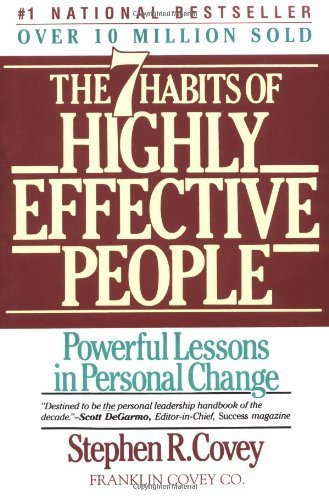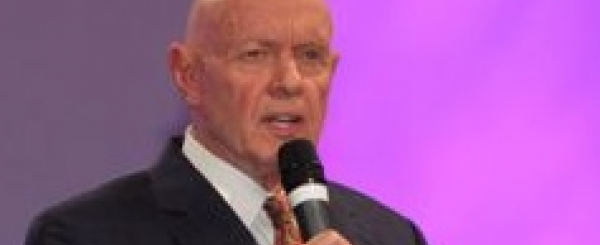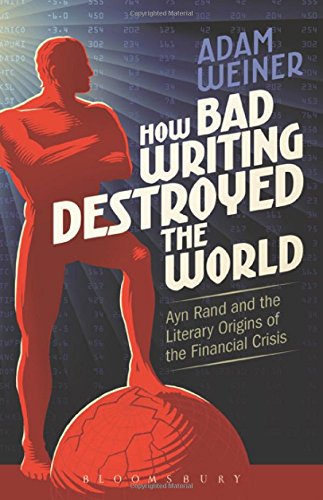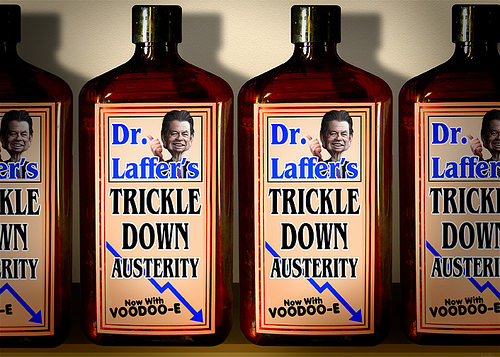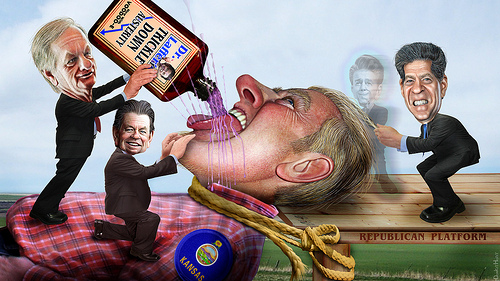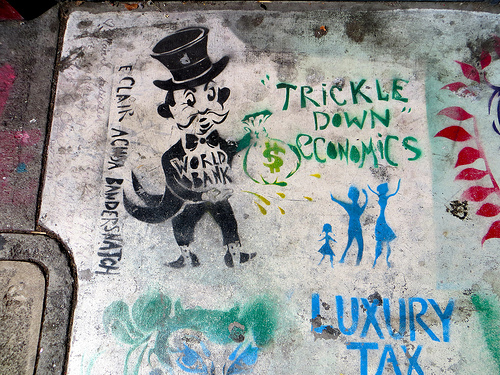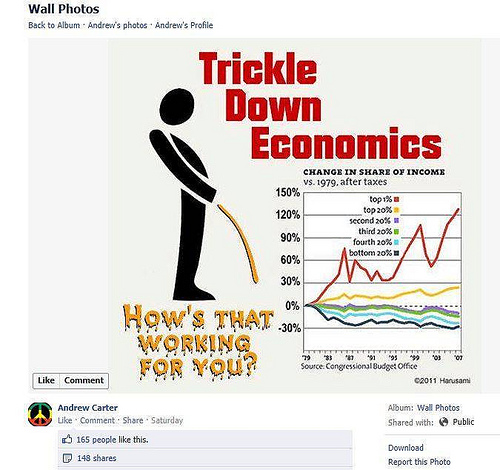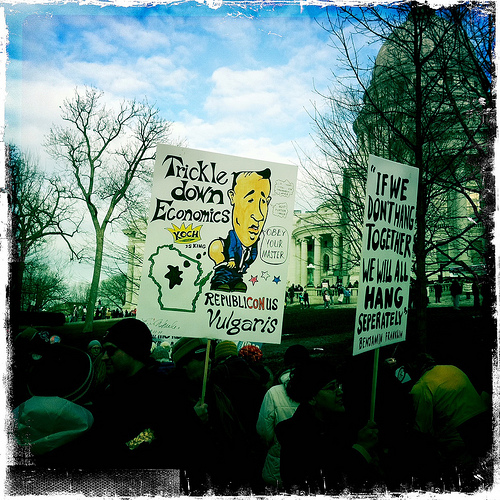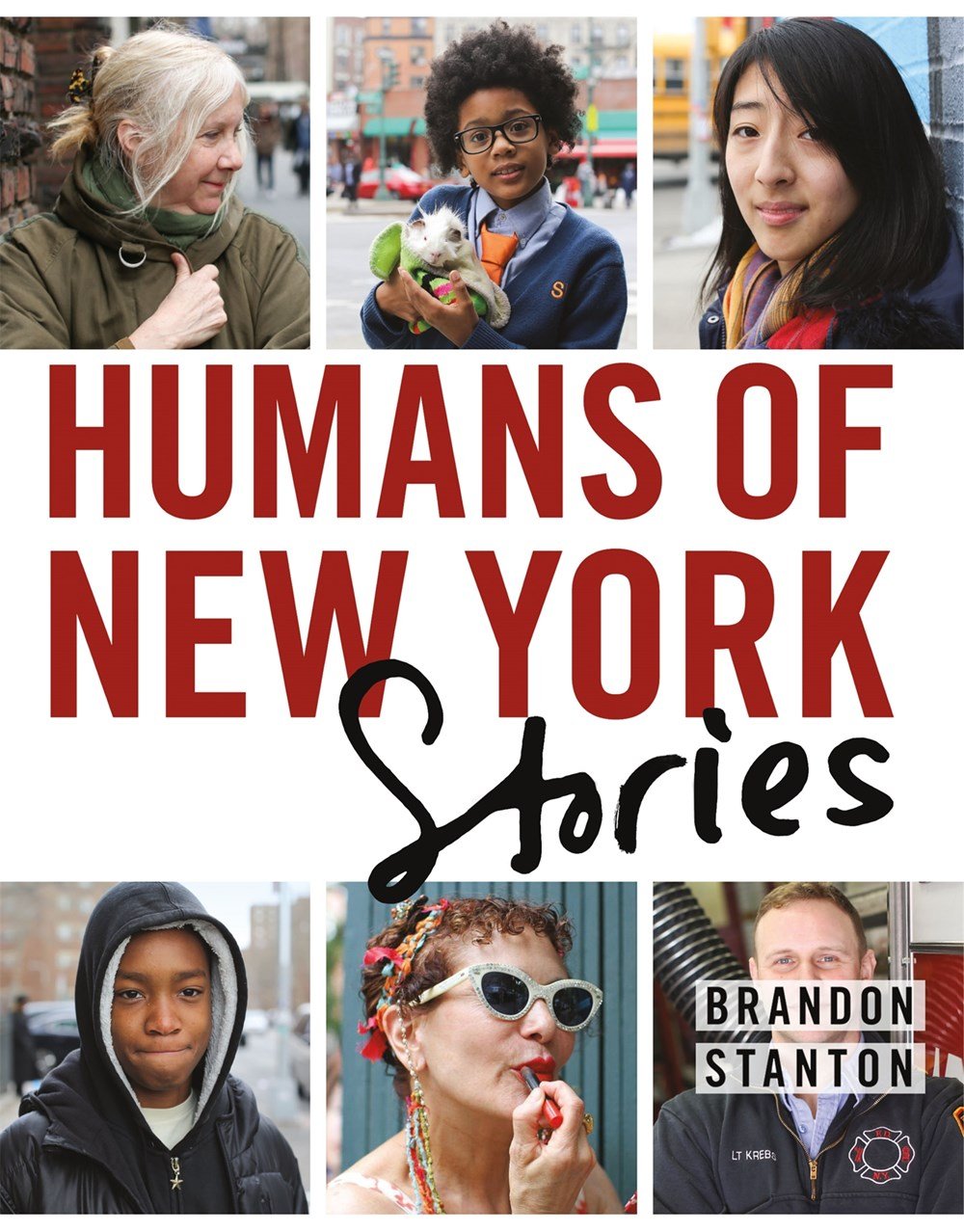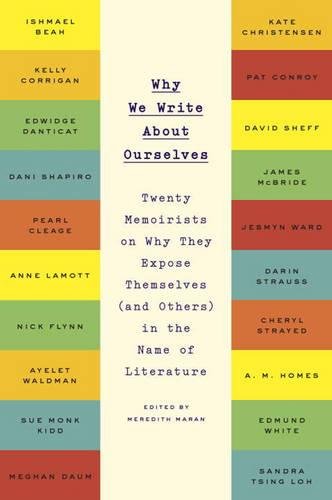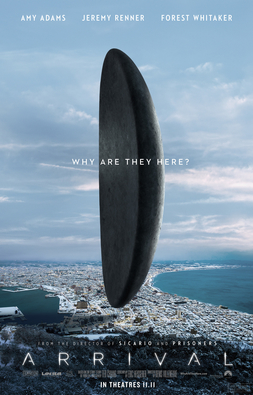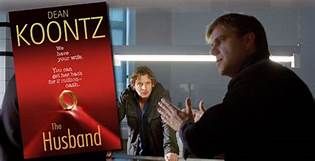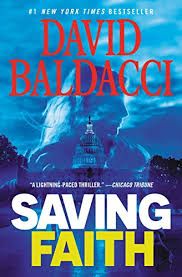How Bad Writing Destroyed the World by Adam Weiner / Any Rand and the Literary Origins of the Financial Crisis
Adam Weiner's book, "How Bad Writing Destroyed The World" takes some of the thinking that has influenced the world for the last 75+ years and ties it to a surprising source.
The "Bad Writing" refers to a Russian author, Chernyshevsky. In 1863 he wrote a book "What is to Be Done". One chapter in the book, "The most atrocious work of Russian literature", sums it up.
Chernyshevsky socialist philosophy was called "rational egoism". How this philosophy became the foundation of Ayn Rand, the arch-capitalist, is the shared belief that "the rational pursuit of selfish gain on the part of each individual must give rise to the ideal form of society". The book also caught the attention Lenin, Dostoevsky, and Nabokov. How their philosophies (also?) meshed with the book was also also discussed in the book.
Ayn Rand's fled to the south where she went to the University of Petrograd. Years later she came to the United States.
She is best known for her book "Atlas Shrugged" and "Fountainhead". Capitalism, limited government, the individual, the free market, and eventually trickle down economics, were her areas of focus.
Her book "Atlas Shrugged" was reviewed by Whittaker Chambers who, with William Buckley, were the other well known conservatives of the last century. When Chambers said of her book that it was a "fairy tale" their relationships ended. (I think he was right)
In other writings Rand said of herself that she was the smartest philosopher the world had ever had, except Aristotle. She also said that with a free market that, the rich get richer and the poor are hurt sometimes, but then "they deserve it". For her the free market rewarded brains. She thought people would naturally do the right think in a free market, because self interest meant people would protect their reputation.
A early disciple of her's was Alan Greenspan. He would later say he knew economics but didn't know why people acted the way they did. He felt Ayn Rand had helped him with that.
By the time he served as Chairman of the Federal Reserve from 1987 to 2006 he was very much in her influence. After the banks crashed in 2008 the congress called him in and asked him why he had reduced all the regulation that was in place that seemed to have caused the crash? He said he had made a mistake. He said he knew economics but didn't understand people, and felt that the free market would cause people to do the right thing for the sake of their reputation. He misjudged greed, and admitted it.
The book is interesting, relevant, and worth reading.
The Empty Land, by Louis L'Amour
A trapper found a chunk of gold, and in six days Confusion, a new gold-mining boom town near todays Ely, Nevada, appeared where there had been nothing for thousands of years. New discoveries always attracted honest men who came to work the mines, but along with them came thieves, gamblers and outlaws. In just a few days several thousand men and some women came.
Dick Felton was committed to digging his fortune out of a muddy hillside but the town itself was his biggest challenge. Matt Coburn found himself in the new town and his reputation for being a hardened realist and a man that had cleaned up tough towns before had followed him. The town lacked law and order and the mines themselves became the target of a violent plot. Matt Coburn wanted no part of Confusion because too many of his enemies knew he was there, but he found himself with only one way out with honor, but it could cost him his life.
On one side are those who understand only brute force. On the other are men who want law and order but are ready to use a noose to achieve their ends. Matt Coburn and Dick Felton are the only thing separating these two sides, outnumbered and outgunned, they can’t afford to be outmaneuvered. For as the two unlikely allies confront corruption, betrayal, and murder to tame a town where the discovery of gold can mean either the fortune of a lifetime or a sentence of death, they realize that any move could be their last.
Humans of New York & Why we write about ourselves
Humans of New York, by Brandon Stanton came out in 2013. It was the next step for a blog that had been started in 2010. Currently the blog, including social media, has almost 25 million followers.
The appeal of the book was of course the quality of the photography, but it also was the real interest in the people in the pictures. People wanted to know more about their lives. Brandon must have gotten a lot of feedback telling him that and that lead to the most recent version, Humans of New York, Stories. The key thing is that stories telling more about the lives of the people were added.
We want to know more about each other and that has come up in many of this blog's posts. My very first post on this blog talked about experiences I had with a group of men listening regularly to their life stories. We grew closer together and we saw our own lives differently. The success of Humans of New York and our interest in personal stories points to the rise of the the literary genre of Memoirs.
This blog contains a lot of pictures in the various tab sections. This is because the visual images take you out of where you are, and stimulate thoughts, so that you can then connect with the images.
The author/editor, Meredith Maran, put together a book on the subject of life stories and memoirs; her approach is a good next step looking into why this is so interesting.
“Why we Write About Ourselves, Twenty Memoirists on Why They Expose Themselves (and others) in the name of Literature.
She wrote the introduction and provided comments in the book. She presented twenty successful and interesting authors thoughts on "why they wrote works of memoir". She compared this to the age-old tradition of oral history as well as their strong popularity.
I can relate to the idea of learning life stories through oral histories. My father told me stories of all our ancestors, as he recalled them. Great Grandparents, Uncles, Aunts, Cousins and more. He told their stories and I should add that he did it over and over again. I often thought that I might just tell him, “Dad, I heard that story before” but I never did. I'm glad I didn’t.
The twenty writers chosen by Merideth presented their thoughts in similar formats. They each answered the question of "why they wrote about themselves".
One author, Ishmael Beah, is well known for his memoir “A Long Way Gone: Memories of a Boy Soldier”. I remember when this was released, some critics said it wasn't authentic. It was about the author having been pushed into service in the army of his country, Sierra Leone, as a 12 year old boy. This author talked in Merideth's book about how that made him feel to be called a fake. He also addressed the question of why he wrote, saying he wrote his memoir to “prove his existence”.
Kate Christensen has written several books, and her comments about her memoir caught my attention, particularly when she discussed her divorce at about age 50, and then marrying a man 20 years younger than her. She said it worked out great and talked about it some. She said that over her years as a writer, journal-keeping had really helped her develop her skills. She also said that at a young age she became enthralled with autobiographies, biographies, and journals, especially of famous people, and that she wanted to explore the existence of others. (She wrote The Great Man and other books)
Kelly Corrigan, explained that “she had an insatiable hunger to know the intimate details of other people’s lives”. It seemed like that helped her to understand that her readers could want to know more about her. A lot of what she is about relates to her family. (She wrote Glitter and Glue: A Memoir and others)
Jesmyn Ward tells her story of being a poor black women growing up in rural Mississippi. It is a success story, even though her life had plenty of challenges. She started out as a fiction writer. Like so many good writers she had a purpose. She said “that there were other people out there living through (what she did) who were wondering why nothing of their experience was being reflected back to them in the media, TV, books, or anything.” They couldn’t see themselves in the outside world and she wanted her book to reach them. (See wrote Salvage the Bones: A Novel and others)
These books have similar implications. They show the interests we have in each other. The book “Why we Write About Ourselves" was well worth it.
The Gifts of Imperfection by Brene`Brown
Thank you to those new people who logged on to see the post on “Craft A Life You Love, by Amy Tangerine. The book had a good story and good message that has application to gaining insight into inspiration and creativity.
I also like the book “The Art of Memoir, by Mary Karr”. It’s focus is on writing and a the love of literature but it still reveals a lot about what real passion for one’s craft or work is. Right at the beginning she says that “there is a place in hell for writers that quote themselves………….” It worries me! It was a great book. Her love of writing just shines through the message.
Brene` Brown is a well-known author. She comes across very polished as does her book. The Gifts of Imperfection, Let Go of Who You Think Your're Supposed to Be and Embrace Who You Are, Your Guide To A Wholehearted Life, by Brene` Brown.
The book is very well done. In some ways I would call it polished. Dr. Brown seems polished too. It put me off a little, at first.
I have read so many self-help books that they tend to blur together. Remembering her talking on "Ted talks", giving a flawless presentation, just reminded me that the subject of personal imperfections just doesn’t have solutions that can be presented with such polish.
Her book started out to quickly take her out of the world of research she had spent so many years in, and bring her to the same table with those many folks who had such personal struggles with self-doubt and identity. She needed and obtained common ground with the problems she discussed.
In the preface of her book she said:
“How much we know and understand ourselves is critically important, but there is something that is even more essential to living a “Wholeharted life”: loving ourselves.”
She presented her own version of re-inventing herself, to tell her story, and this is the book that resulted from that. She suggested that love and compassion were the keys to the change but early in the book talked about the challenging reality of digging into those type of subjects.
I liked her finding and comment that we only can love others to the degree that we love ourselves.
I thought this finding was interesting in that it verifies how insightful many of the scriptures are. Both the books of Matthew and Mark talk about the two greatest commandments. First, to love the Lord, and the second was, "Thou shalt love thy neighbor as thyself. Loving your neighbor, according to this advice, needs to follow having learned to love yourself first. This was an important part of Dr. Browns message, and her findings also.
I liked her comments on how we define our self. She observed that people struggle with the question often asked, “What do you do”? She said offering a simple answer just for the sake of the one asking it, was and is, unfair. Her approach of instead saying “How much time do you have?” was great.
I also liked the idea of offering a series of answers since we are all somewhat complicated. If it were me answering I might say that I am a Thinker/Reader/Writer/Entrepreneur/Business Owner/Business Executive/Lover of a good movie/the Utah Jazz/ and a night out. This answer works for me.
Reading her book softened the perception I had of Brene` Brown. Her insight was real and based on hard work on her part.
I don’t think there is any one book on self-improvement that I would say is the solution. She talked about her point in time when her imperfections forced her to look in the mirror. The right book might do that for you. If it is the right 20th book that is ok too.
Click on the link. Go to Amazon and buy her book. Check out our Books Tab and our Arts and Creativity Tab
Craft, A Life you Love by Amy Tangerine
Does loving what you do attract creativity? Does it feed your soul?
The book "A Life You Love by Amy Tangerine” discusses how to “craft a life and soul that you love.” Amy asks, “what is it that we love?” She then presents this quote from Howard Thurman, an influential African-American author, philosopher, theologian, educator, and civil rights leader. “Don’t ask yourself what the world needs. Ask yourself what makes you come alive, and go do that because the world needs people who have come alive.”Amy makes you feel her love for her craft, which is an excellent book.
Thoughts on Creativity
Emotions and feelings fuel action and are discussed as tools to break through to the subconscious. The conclusion is evident that we need to find ways to think good thoughts and have good feelings.
Leonardo da Vinci said that artists are "links in a chain.” They build on what they find, and what they add becomes something the next artist can continue to build on. "Creativity" is what is added.
Connected Life Events flow from books, your creativity, and the invention of others.
Stories of Your Life and Others by Ted Chiang & The Movie
Which was better, the book or the movie?
The book “Stories of Your Life and Others” by Ted Chiang was a different reading experience for me. This is because I went to the show and saw the movie when I finished the book. “Arrival” is based on one of the nine chapters in this book. I went to the front the same day I finished the book.
This proved to be very revealing. Usually, a book is the better option between movies and books, and there are many good reasons for that.
The plot usually is better in a book. You can see into the character’s minds and thoughts. You know more about the characters. You know their history. You may be exposed to a lot of side stories. When they do something, it can be clearer why they are doing it with more depth of knowledge.
You have more freedom to imagine the surroundings in your way. When you read, you can use all of your own experiences to add to the descriptions and things that happen.
In a movie, sometimes the actors do a poor job or are poorly cast for their roles. They can be such beautiful, or maybe ugly people, that their presence distracts from the plot. You can be influenced by sound or poor acting to the extent that you lose track of the plot's intent.
This movie and this book were significant exceptions to what usually is the case.
The first problem was the plot. The plot in the book seemed to be the central theme of aliens landing in several places on the earth and efforts made in trying to communicate with them. What seemed like a subplot in the book were the memories of the linguist, Dr. Louise Banks. She kept remembering her daughter’s death and many specific events in her short life. Those memories popped up in paragraphs that just seemed at times as a sidebar thought and not the main story. That more important story of the alien’s arrival appeared to be the main storyline in the book. The purpose of those memories wasn’t clear or understood until the end of the story in the book.
We were left too much room to project our thoughts about why the memories were occurring and didn’t see the connections.
In the movie, those memories turned out to be as necessary or more important than the alien’s visit. The movie seemed to have more control over the memories plot. It could emphasize some of those very relevant memories to the overall event. The power was in the advantage of being able to imply connections to things by flashbacks. The repetition was itself a statement. Seeing the facial expressions as the mother remembered things was a real advantage.
The relationship that evolved between the two key actors was detected much sooner in the movie, again because you could see their faces by just watching them together. This is another area where it wasn’t clear in the book how they felt about each other until the end.
This movie was better than the book.
The movie “Arrival” left me in awe at the plot. Not just the arrival but all that happened. The book “Stories of Your Life” left me unclear about what brought about the event.
Books often precede good movies. They are usually so much better that it is assumed that you’re better off with the book. It isn't unusual to walk out of the theater and hear someone saying to a friend, "O, the book was so much better.”
Both books and movies are influences of importance. Both can teach you and help you understand yourself better. Through both, you can have experiences you wouldn’t have otherwise been able to. Don’t discount movies as being literary influences.
Making a Literary Life, Advice for Writers and other Dreamers by Carolyn See
Carolyn See wrote the book “Making A Literary Life: Advice for Writers and Other Dreamers.” It is one worth reading a few times. Of course, if you want to be a writer, it is a great book, but understanding the role of "characters in any plot,” even our own life story, can be better understood by this book.
We see our own life from the characters we connect with over the years. The narrative for our own story is what we think the plot was. When we look back and rethink it, we often see the characters differently, and the narrative changes.
Carolyn discusses how she uses characters to build a plot but that makes us think and even help us if we think about our own life characters. It is easy to see how different conclusions in a story will happen just by giving more, or less, influence to some of the characters. She tells us about doing this in her novels?
Her book tells writers, dreamers, and even those trying to see their own life more clearly, how to find and identify the characters needed for the plot.
She said that obviously, the characters we will be most familiar with come to us from our own life, and that the characters needed in writing a novel can be based on them. Even if you’re a "dreamer" and your plot is just fantasy, it still has to be delivered in a plot by someone. Names can be changed if you draw on your own life, but the personality and essence of the characters can more easily be put in place and worked with if you use them.
To get started finding your own characters make up two lists. For the first list, pick the ten most important people in your life by asking these questions as a guideline: “Whom do you love? Who betrayed you? Whom did you betray? Who drives you nuts? Who is out of your reach? Who is your role model? Who is your benchmark for insanity? Also ask "who made a difference"?
On the second list, she suggests listing the other type of people you know. “The ones that gave you the willies. Those who creep you out and you don’t know why?”. I would also suggest "those that hurt you"
Once you have your two lists you have the major characters for your stories and your writings. They will work fine for fiction.
Now if the lists are just your own real life characters and all you want to do is rethink your life that’s fine but think about what you just did. You made a choice as to which list each person was put on. What if your choice was different?
Weaving the plot into narrative from the "interaction of the characters" is what a novelist does. We likely will also see a plot and narrative in how we recall the connections to our own life characters and events.
Often you find that great writers talk about how they just "listened to their characters" and just sit back and listen to what happens and then wrote it all down. We can do the same thing with our own life’s characters as we reweave, update, and make sense out of our lives. Our perception of what happened changes, Over time some characters drop out of the story and others take on a different role.
What if you add a new character to your own life story? What if you knew Aristotle, William Buckley, Gandhi, or even Jesus Christ well enough to put them into the dialog? That approach is in part what is called a "Master Mind Alliance". How would the new character respond to what was being said? How would the input of others change, with the new person’s involvement? Would you have turned out different? It becomes a mental approach but it might open some new thoughts, directions, or conclusions for you.
The novelists, Carolyn teaches us, picks characters that they understand. They listen closely to them. You can decide to listen differently to your characters than maybe you already did.
A Torch Kept Lit, Great Lives in the Twentieth Century by William F. Buckley
William F. Buckley Jr. died in 2008, but a new book has been released, "A Torch Kept Lit,” by James Rosen, his editor, over many years.
It has 50 eulogies that Buckley wrote. They are presented in 3 main categories. Close friends and family, successful people in general, and then those he didn't like.
I found it particularly interesting to read some of those from the "not liked" group.”
His lifelong support for his Catholic Faith never changed and is impressive. He often expressed his love for religion. So many intellectuals quickly tell you that they are not "believers.” It seems to be a badge of honor for them.
The eulogy on Ayn Rand was reprinted in his new book and is one from his not liked category. He said that the first time he met Ayn Rand, she approached him at a party and asked him why someone as intelligent as he was believed in God.
That put him off, but then he mentioned that she also said of herself that "she was the 2nd most influential philosopher next to Aristotle".
She is known for a couple of books which I will mention, Atlas Shrugged & The Fountainhead.
In my opinion, Buckley mentioned a couple of her quotes, and they seem like good ones to go on her tombstone.
She said: "Greed is Good, Compassion is Bad.” She added: "Capitalism rewards the rich (good) and punishes the poor (even better, cause they deserve it).”
(Wow, her books won't be on my recommended reading list)
God & Man at Yale, by William F. Buckley
Bill Buckley had just graduated from Yale. His first book pointed out how Yale has failed its undergraduates, specifically in their religious teaching and overall focus. According to Buckley, he said by some as an effrontery or even a protofascist thought.
His point was that since Yale was a religiously affiliated university, it ought to support a belief in God. Still, instead, they went out of their way to teach that Government was the answer to everything, and their focus included collectivism, atheism, and agnosticism. Yale accomplished this focus by choice of classes, textbook use, and instructor bias.
The book was a bold statement accompanied by the names of instructors and examples. It was his first book and significantly influenced Buckley, becoming well known for his religious views and as a spokesman for conservative views.
Past Book Reviews - Click on Book
2018 Reviews June- Dec. Click on Book
2017 Books Read
2018 Reviews Jan.-June Click on Book
2016 Reviews & Before
Screwtape Letters, by C.S. Lewis →
C.S. Lewis's "Screwtape Letters" is a masterpiece of satire. It is a serious look at an average man that can easily be any of us. The ordinary day-to-day life of this man is the focus of the story. He is seen from the vantage point of Screwtape, a senior tempter in the service of "Our Father Below."
Screwtape is working for Satan. Wormwood is a new demon given the assignment to ensure that the ordinary man he is to tempt will gain damnation. We assume that Wormwood doesn't want to fail this assignment to avoid his final damnation. His efforts have many humorous sides, but we see ourselves in this ordinary man.
I have always loved T.S. Eliot’s quote": We shall not cease from exploration, and the end of all our exploring will be to arrive where we started and know the place for the first time” This book is an effective and exciting way of "seeing ourselves with “other eyes.” by looking at this average man and what happens.
A must-read book.
Mere Christianity, by C.S. Lewis
The BBC asked C.S. Lewis during World War II to do some radio programs about the fundamentals of Christianity. He started these 15 minutes broadcasts in 1941, and they came together in part as the book "Mere Christianity,” published in 1952. It is a timeless classic as influential today as when Lewis originally wrote it.
The book takes us from when Lewis was an Atheist through his ultimate conversion to Christianity. The book looks closely at what it calls moral law and says that understanding it is essential. His sense of humanity's failure to keep the moral law is key to how he sees Christ's work in overcoming the effect of Satan's rebellion.
It gives a comparison to other views of what God is. He states that Christ either was God or was not or just thought he was, and then based on Christ's character, he concludes that he was. The book looks at how Christian beliefs result in creditable ethics.
An introductory look at Christianity serves as a fundamental touchstone for Christian discourse.


